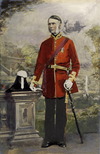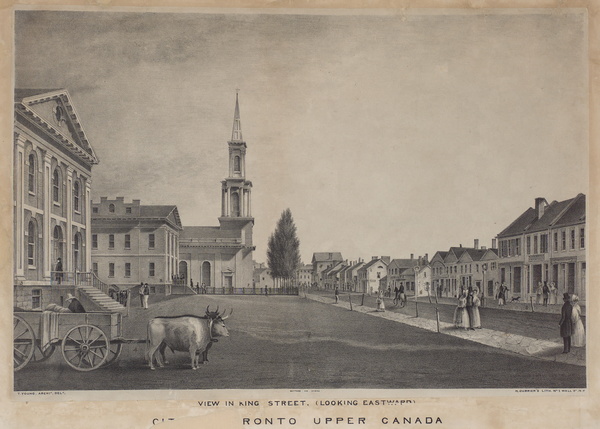- Responsible Government
- Reform Politics in the Colonial Period
- The Idea of Responsible Government in Lower and Upper Canada before 1839
- Lord Durham, His Report, and the Union (1839—42)
- Robert Baldwin and Sir Louis-Hippolyte La Fontaine
- The Baldwin—La Fontaine Ministry (1842—43)
- Continuing Debates in the Province of Canada (1843—48)
- The La Fontaine—Baldwin Ministry: The First Responsible Government of the Province of Canada (1848—51)
- Achieving Responsible Government Elsewhere in British North America
Upper Canada
In Upper Canada an opposition group existed within the assembly before the War of 1812; three of its members – Joseph WILLCOCKS, Abraham MARKLE, and Benajah MALLORY – defected to the Americans during the war [see Treason and Disaffection]. The writing of Upper Canada’s political past began with William Lyon MACKENZIE’s retrospectives, published in the Toronto Colonial Advocate in 1833. He depicted Robert NICHOL as a self-serving pawn of the executive. The portrait is a distorted one. Nichol’s detractors denounced his actions as little more than the political venting of private spleen but there was more to it than that, much more:
“The opening of the seventh parliament (1817–20) – Nichol had been re-elected in Norfolk in 1816 – witnessed a striking reversal in his attitude towards the administration and Gore in particular. On the first day, 4 Feb. 1817, he gave dramatic notice of the change with a motion demanding that the lieutenant governor recognize ‘the rights and privileges of this House as amply as they are enjoyed by the House of Commons in Great Britain.’ Just how serious his opposition would become was not apparent until the end of the session. In a manner by then commonplace in popular assemblies, Nichol seized upon Gore’s call for aid in defraying the costs of government to instigate a more general inquiry into the state of the province. Under his leadership the assembly went into a committee of the whole. Nichol introduced resolutions which, among other things, vilified the crown and clergy reserves as ‘insurmountable obstacles to the forming of a well-connected Settlement.’ A particularly contentious point was the policy of restricting immigration, especially from the United States. On 7 April, two days after Nichol had undertaken his sweeping attack upon the administration and imperial policy, an appalled Gore prorogued the assembly....
“In criticizing the administration, he adopted the traditional whiggish language of the 18th century.... When Nichol moved from being the administration’s manager in the assembly to its principal opponent, he was sufficiently familiar with Whig language to use it as the most appropriate justification for displacing irresponsible ministers and unpopular governors without being insurrectionary by attacking the crown.”
For more information on reform politics in Upper Canada, consult the following biographies.






